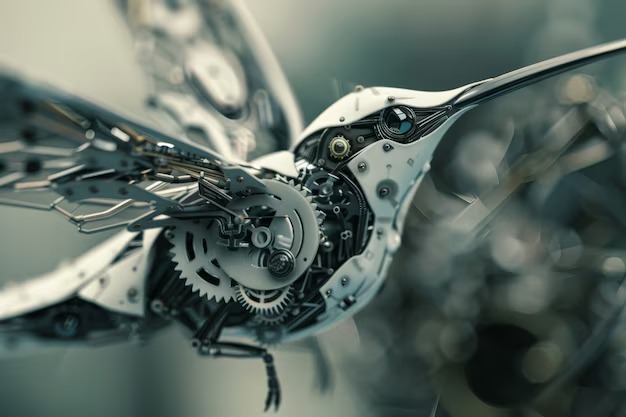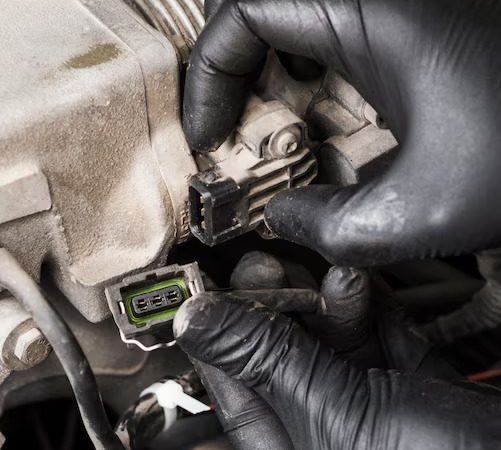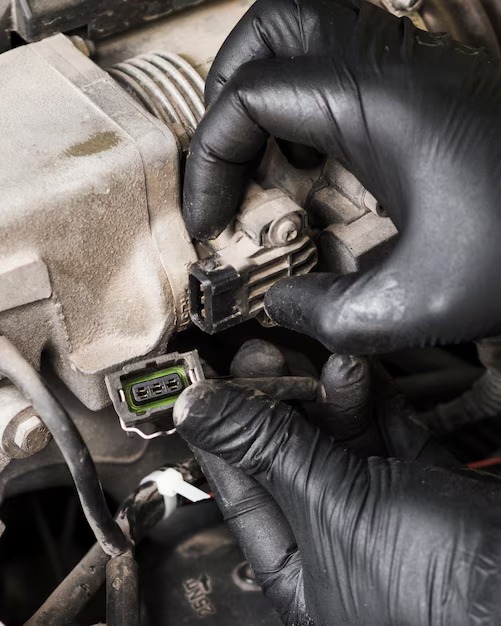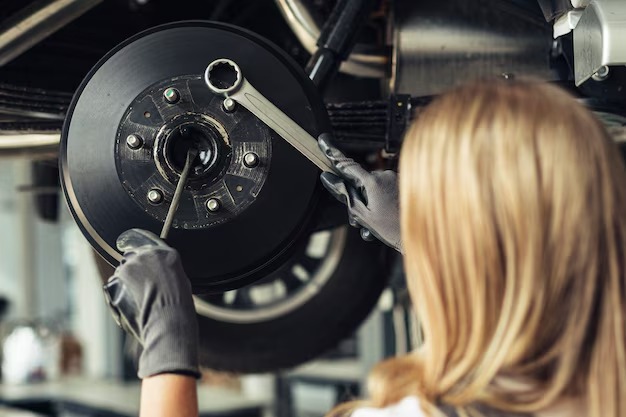Essential Car Maintenance Checklist Guide for a Smooth Ride

Essential Car Maintenance Checklist Guide for a Smooth Ride
Owning a vehicle involves more than just the thrill of the open road; it requires regular attention to ensure optimal performance and longevity. Just as we invest time in our personal well-being, our automobiles demand similar care to remain reliable companions. A well-maintained automobile not only guarantees safety but also enhances the driving experience.
Understanding the fundamental practices necessary to keep your automobile in top shape can seem daunting at first. However, equipping yourself with the right knowledge can make this process straightforward and even rewarding. From routine checks to timely repairs, a little effort can yield significant benefits, both financially and in terms of reliability.
By embracing proactive habits, you can avoid unexpected issues and enhance the lifespan of your vehicle. This exploration into the most critical aspects of upkeep will empower you with the insights needed to navigate challenges confidently and enjoy countless miles ahead.
Importance of Regular Vehicle Inspections
Regular examinations of your automobile play a critical role in ensuring its longevity and performance. Such evaluations are not merely a suggestion; they are a necessity for the well-being of both the vehicle and its passengers. By adhering to a systematic inspection routine, owners can identify potential issues before they escalate into severe problems.
Here are some key reasons why frequent assessments are vital:
- Safety: Regular checks help in detecting any safety hazards that could jeopardize the well-being of individuals on the road.
- Cost Efficiency: Early identification of minor issues can save significant expenses associated with major repairs down the line.
- Performance Optimization: Consistent evaluations ensure that the vehicle runs smoothly, enhancing its operational efficiency.
- Environmental Responsibility: Properly maintained vehicles have lower emissions, contributing to a healthier planet.
- Value Preservation: Keeping up with inspections helps maintain the vehicle’s value, should you decide to sell or trade it in.
In summary, prioritizing regular inspections is a wise investment in safety, finances, and the overall performance of your automobile. Establishing a routine can ensure a safer and more enjoyable driving experience.
Key Fluid Checks for Longevity
Maintaining the right levels and quality of various liquids is crucial for the overall health and performance of your vehicle. Regular examination of these essential substances can help prevent costly repairs and extend its lifespan. Understanding how to inspect and service these fluids will ensure reliable operation and optimal efficiency.
The most critical fluids include engine oil, coolant, transmission fluid, brake fluid, and power steering fluid. Each plays a specific role in ensuring that components function harmoniously. Regular assessments can help detect leaks, contamination, or depletion, which can negatively impact performance if left unaddressed.
Starting with engine oil, it’s vital to check both the level and condition, as this lubricant is responsible for reducing friction and preventing wear. Similarly, the coolant prevents overheating by regulating engine temperature, and it’s essential to verify its concentration and level. For optimal shifting and power delivery, regularly inspecting transmission fluid is also necessary.
Brake fluid is another critical substance; keeping it at the appropriate level is imperative for safety, as it ensures effective braking performance. Finally, power steering fluid keeps the steering system responsive and smooth, making it another area worth checking periodically.
By routinely monitoring these fluids, you can significantly enhance vehicle reliability and ensure that it remains in top condition for years to come. Prioritizing these checks is not only practical but a wise investment in the longevity of your automobile.
Tire Care: Maintaining Optimal Performance
Ensuring the longevity and effectiveness of your vehicle’s wheels is crucial for a safe and enjoyable driving experience. Routine attention to this aspect not only enhances overall performance but also contributes to fuel efficiency and safety on the road. Proper upkeep can prevent premature wear and tear, leading to better traction and stability.
Regular Inspections
Conducting frequent checks is paramount. Here are some key elements to monitor:
- Visual examination for cracks, bulges, or foreign objects.
- Checking tread depth to ensure adequate grip.
- Listening for unusual noises that could indicate issues.
Proper Inflation
Maintaining the correct air pressure is vital for optimal function. Follow these steps:
- Check the recommended pressure levels from the manufacturer.
- Use a reliable gauge to measure current pressure.
- Inflate or deflate as necessary to reach proper levels.
Remember to check pressure regularly, especially with changing temperatures, as this can affect performance.
By implementing these practices, one can ensure that wheels remain in top shape, promoting safety and efficiency while driving.
Understanding Brake System Health
The condition of your stopping mechanism is crucial for road safety and overall vehicle performance. Recognizing when your braking components require attention can lead to better control and confidence on the road. A well-functioning braking system can mean the difference between a smooth stop and an unexpected accident.
Brakes are subjected to significant wear over time due to constant use, which can result in diminished effectiveness if left unexamined. Various signs can indicate potential issues, such as unusual noises, vibrations, or a softer pedal feel. Regular inspections and proactive measures can help identify problems before they escalate into major repairs.
Beyond just the pads and rotors, it’s vital to consider the entire assembly, including brake fluid levels and lines. Keeping an eye on these factors enhances your ability to respond to potential emergencies and promotes longevity in your vehicle’s performance. Understanding the components and their care plays an essential role in maintaining optimal braking capability.
Battery Maintenance Tips for Reliability
A well-functioning power source is crucial for uninterrupted operation and enhanced longevity of your vehicle. Proper care and attention can prevent unexpected failures and ensure smooth journeys. Here, we explore vital recommendations to keep your battery in top condition and extend its lifespan.
Regular Inspection
Optimal Charging Practices
Keep your energy source fully charged, especially if the vehicle is not used frequently. Consider installing a trickle charger to maintain charge levels during long periods of inactivity. Additionally, avoid deep discharges as they can significantly shorten the lifespan of the power source.
Essential Checklist for Seasonal Prep
As the seasons shift, it becomes crucial to ensure that your vehicle is ready to handle various weather conditions. Preparing effectively can enhance safety, reliability, and performance. A thorough review of components and systems is key to enjoying a trouble-free experience, regardless of what nature brings.
| Task | Details | Frequency |
|---|---|---|
| Tire Inspection | Check tread depth and pressure; consider winter or summer tires. | Seasonally |
| Fluid Check | Examine oil, coolant, brake, and windshield washer fluid levels. | Monthly |
| Battery Health | Inspect terminals for corrosion; ensure it’s fully charged. | Before winter |
| Wiper Blades | Replace worn blades to maintain visibility during rain or snow. | Seasonally |
| Lights Check | Confirm all headlights, taillights, and indicators are functional. | Monthly |
| Brakes Assessment | Evaluate brake pads and discs for wear; listen for unusual sounds. | Seasonally |
| Cooling System | Inspect hoses and coolant condition; flush system if necessary. | Before summer |
Regularly revisiting this list ensures that all aspects are covered, promoting a safer and more pleasant experience on the road no matter the climate.
Q&A: Maintenance guide car
What is the importance of following a maintenance schedule for my vehicle?
Following a maintenance schedule is crucial for ensuring your vehicle operates efficiently and safely. It helps prevent major repairs, extends the life of your car, and keeps you informed about necessary services like oil changes, tire rotations, and air filter replacements.
How often should I replace my air filter?
Typically, you should replace your air filter every 12,000 to 15,000 miles or once a year, depending on your driving conditions. A clean air filter improves engine performance and fuel efficiency, making it an essential part of your maintenance schedule.
What is the recommended tire pressure for my car?
The recommended tire pressure for your car can usually be found in the owner’s manual or on a sticker located inside the driver’s side door. Maintaining the correct tire pressure is important for safety, fuel efficiency, and tire longevity.
How can I tell if my car battery needs to be replaced?
Signs that your car battery may need to be replaced include slow engine cranking, dim headlights, and the presence of corrosion on battery terminals. Regular checks should be part of your maintenance schedule to avoid unexpected breakdowns.
When should I schedule my next oil change?
You should schedule your next oil change based on your vehicle manufacturer’s recommendations, typically every 5,000 to 7,500 miles. Checking your oil level regularly can help you determine when it’s time for an oil change.
What are the consequences of not replacing a dirty air filter?
Not replacing a dirty air filter can lead to reduced engine performance, decreased fuel efficiency, and increased emissions. It’s important to include air filter checks in your regular maintenance schedule.
How does improper tire pressure affect my vehicle?
Improper tire pressure can lead to uneven tire wear, decreased fuel efficiency, and compromised handling. Regularly checking and maintaining the correct tire pressure is essential for safe driving and should be part of your maintenance routine.
What is the average lifespan of a car battery?
The average lifespan of a car battery is around three to five years. Regular maintenance checks can help you monitor its condition and ensure timely replacement before it fails.
How often should I check my oil level between oil changes?
You should check your oil level at least once a month or before long trips. Keeping an eye on your oil level helps ensure your engine runs smoothly and can prevent damage between scheduled oil changes.
Why is it essential to keep a detailed maintenance schedule for my vehicle?
Keeping a detailed maintenance schedule helps you track all services performed on your vehicle, ensuring that nothing is overlooked. This proactive approach can save you money in the long run by preventing costly repairs and ensuring optimal performance.
What is the importance of a car maintenance schedule for car owners?
A car maintenance schedule is essential for car owners as it outlines the recommended service intervals to keep your vehicle running efficiently. Following this schedule helps prevent costly repairs and ensures that your car remains in good condition.
How can I help keep my vehicle in optimal condition?
To help keep your vehicle in optimal condition, follow a routine car maintenance plan that includes regular checks of fluids, tire pressure, and components like the timing belt and windshield wipers. This proactive approach minimizes maintenance costs and enhances the life of your vehicle.
What should I do if a warning light appears on my dashboard?
If a warning light appears on your dashboard, it’s important to check your vehicle immediately. Depending on the light, you may need to consult your owner’s manual or contact a service center for further diagnosis to ensure your car is maintained properly.
How often should I check my tire pressure?
You should check your tire pressure at least once a month or before long trips. Proper tire pressure is crucial for safety and fuel efficiency, helping keep your car running well under various driving conditions.
What are the recommended maintenance services for a manual transmission vehicle?
For a manual transmission vehicle, recommended maintenance services include regular fluid changes, checking the clutch system, and inspecting the serpentine belt. Following these guidelines helps keep your vehicle running smoothly and extends its life.
How can I tell when it’s time to check and replace my motor oil?
It’s time to check and replace your motor oil depending on your vehicle’s make and model. Most manufacturers recommend changing conventional motor oil every 5,000 to 7,500 miles, but always refer to your owner’s manual for specific guidelines.
What is the role of tire rotation in vehicle maintenance?
Tire rotation is an essential part of vehicle maintenance that helps extend the life of your tires by promoting even wear. It’s generally recommended to rotate your tires every 5,000 to 8,000 miles to ensure optimal performance and safety.
How does proper car maintenance affect the life of your vehicle?
Proper car maintenance significantly helps extend the life of your vehicle by ensuring all systems function correctly. Regular checks and services reduce the likelihood of major repairs and keep your car running efficiently over time.
What should I do to maintain the exterior of my car?
To maintain the exterior of your car, regularly wash and wax it to protect the paint and finish from environmental damage. Additionally, checking for scratches or rust can help you address issues early and keep your car looking good.
Why is it important for car owners to follow their vehicle’s maintenance schedule?
Following your vehicle’s maintenance schedule is crucial for car owners as it ensures all required maintenance tasks are completed on time. This not only helps keep your vehicle running well but also enhances safety and reliability on the road.







